Research
NUS Cities Research aims to be an interdisciplinary and inclusive platform for researchers, academics and practitioners to solve complex urban challenges, and build capacity for the future.
The world is rapidly urbanising with 80% of its population living in cities by 2050. Cities are highly complex adaptive systems and continue to face various existential challenges such as climate change, changing demographics and pandemics. There is a critical need to address them and enhance our understanding of cities. Much of current research done on cities focus on specific aspects of urban problems such as flooding and food security. Leveraging on Singapore’s repertoire of well-documented case studies and urban innovations, NUS Cities seeks to complement current urban research by undertaking urban systems research from foundation to translational, and more importantly, link research to education and the industry.
It will answer the basic question of how cities function as complex adaptive systems and can be made more sustainable, resilient, and liveable through an interdisciplinary holistic approach, aided by a range of methodology grounded by good science and novel methods and tools. It will partner and collaborate with various agencies, IHLs, and the industry to co-create and co-develop ideas for research and implementation. Lastly, it will recommend viable systems solutions that considers social, economic and environmental outcomes through plans and policies. In so doing, it aims to be an inclusive platform for researchers, academics and practitioners to solve complex urban challenges, and build capacity for the future.
Research Strategy
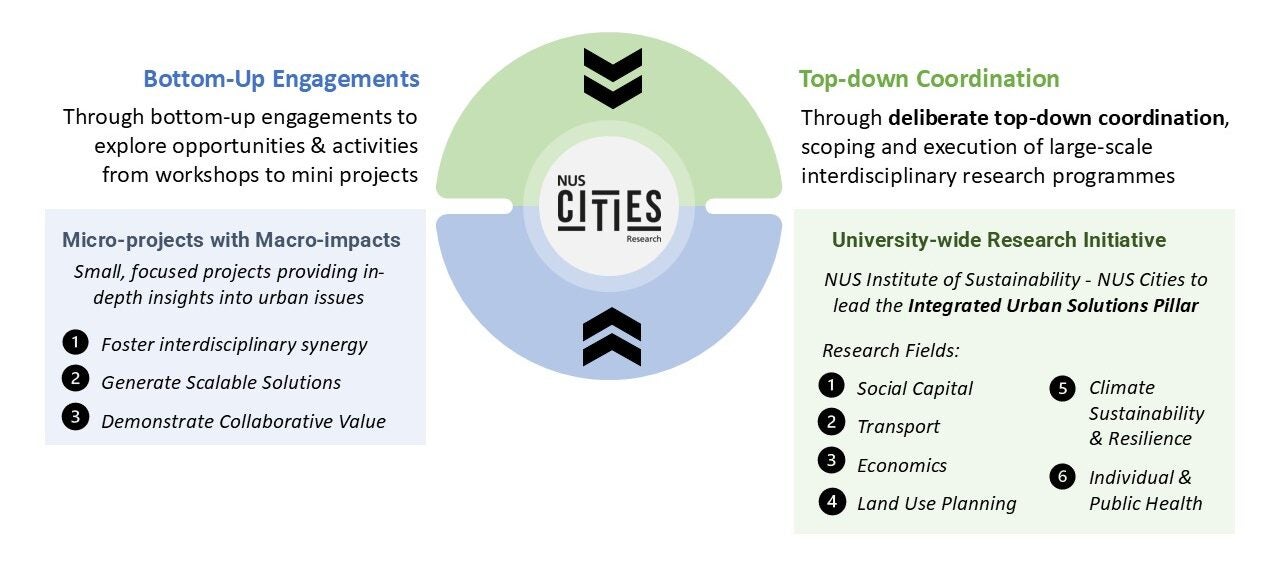
Research Roadmap
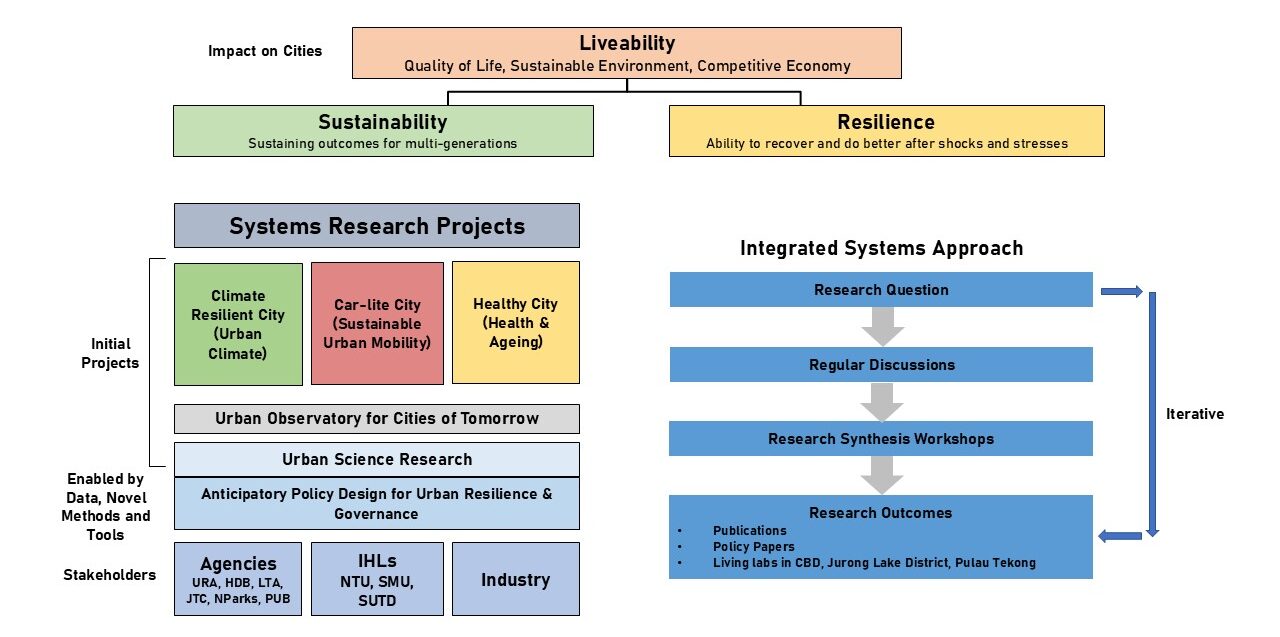
Research Projects
*Note that specific research projects and scopes are still under refinement.
Climate Resilient City
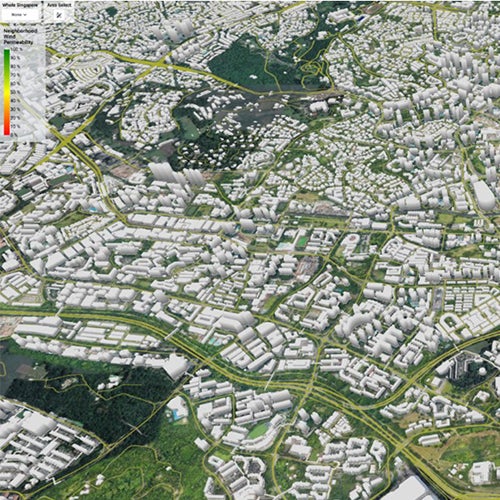
Image source: NUS Urban Climate Design Lab
Urban Science Research
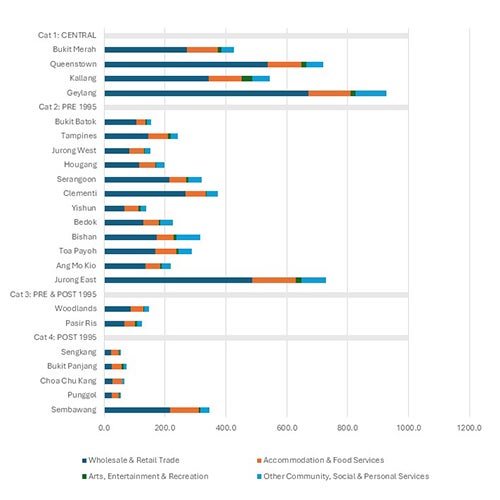
Image source: Dr. Michael McGreevy, NUS Cities
Anticipatory Policy Design
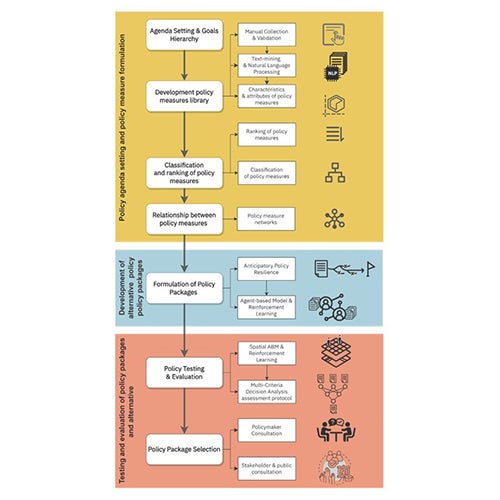
Image Source: Assistant Professor Araz Taeihagh and NUS Cities
**Note that external collaborators and partners are not mentioned for conciseness.




